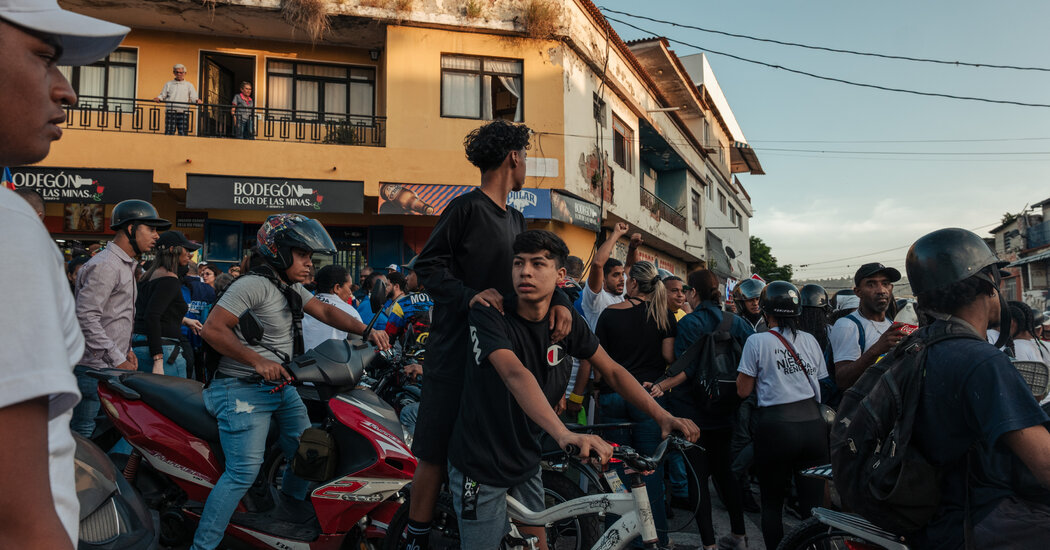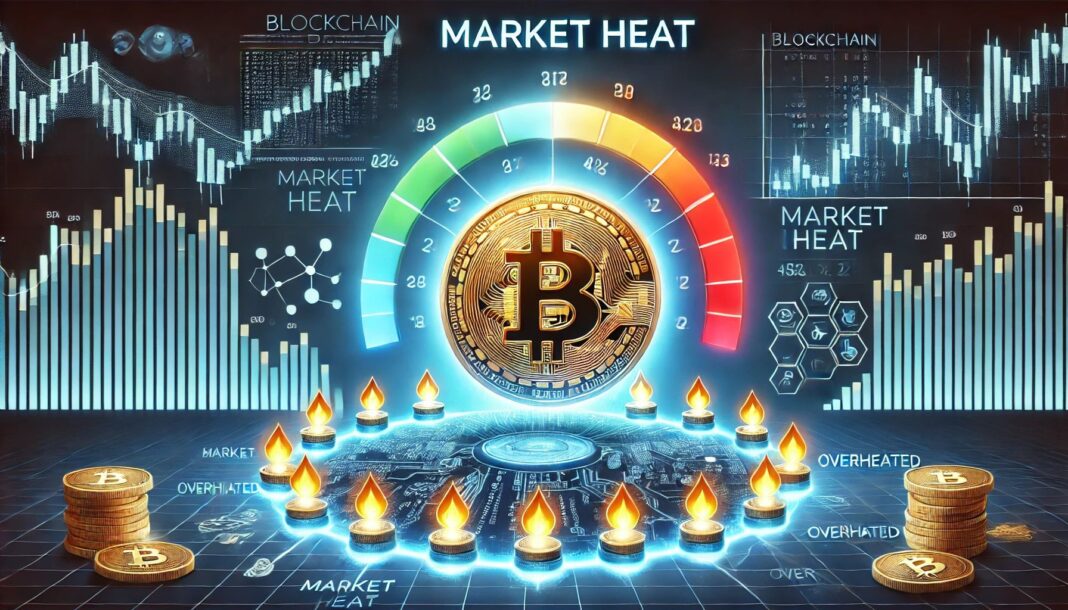A year after he falsified the results of a presidential election, according to independent observers, Venezuela’s leader, Nicolás Maduro, is calling on voters on Sunday to once again head to the ballot box.
In the last vote, Mr. Maduro claimed victory despite a count that showed he had lost by a decisive margin. He then released a reign of terror on protesters, hundreds of whom are still locked up. This time, the election is for members of the legislature, known as the National Assembly, and for governors in the country’s 23 states.
No independent monitors will be present, and inside Venezuela many have said they believe that the results will once again be manufactured. Mr. Maduro is holding the election, analysts say, to project a veneer, however thin, of democracy.
“It serves only to give new life to the status quo,” said Benigno Alarcón, the director of the Center for Political and Government Studies at the Andrés Bello Catholic University in Caracas.
And yet there are opposition candidates participating.
The vote has reopened a rift among opposition activists, who had mostly united last year around the candidacy of Edmundo González, a former ambassador who won more than 60 percent of the presidential vote, according to a ballot count reviewed by the Carter Center, an independent monitoring group.
Mr. González’s most important supporter was María Corina Machado, a charismatic figure who had become the movement’s undisputed leader, but whom the government had barred from running.
Now, opposition figures and voters are divided over participation.
On one side, Ms. Machado is calling on Venezuelans to abstain as a means of protest, claiming the vote is a “trap” designed to legitimize the government of an autocrat. On the other, a cluster of other activists are not only running for office but calling on Venezuelans to head to the ballot box — also as a means of protest.
Mr. Maduro might not allow Venezuelans to choose who governs them, they argue. But the vote can be used as a political weapon all the same, signaling to leaders that people want them out.
The goal is that people see that opposition leaders are active — that they are campaigning, that an alternative is possible, that they are laying the groundwork for future democratic action.
“We can’t just cede the path and let them say they won without resistance,” said Juan Requesens, 36, who emerged as a leader of anti-Maduro protests in 2014, then spent two years in prison and more time under house arrest before being released in 2023.
Ahead of the election, the government lifted bans on political participation for a few opposition activists, including Henrique Capriles, a former governor and two-time presidential candidate. It is a tactic the Maduro government has used before — permitting some activists to run, while banning others — as a means to divide the opposition.
On Friday, government agents detained Juan Pablo Guanipa, a prominent politician and ally of Ms. Machado’s.
Tarek William Saab, the country’s chief prosecutor, argued that Mr. Guanipa was part of a criminal group that sought to unleash violence to prevent Sunday’s vote, and said he had been detained along with 70 other people, including foreigners.
The government often makes such claims about opponents.
There are already roughly 900 political prisoners detained in the country, according to a watchdog group, Foro Penal.
The debate over taking part in Sunday’s vote echoes a similar fight that played out in 2018 among opposition figures, most of whom ultimately abstained from that year’s presidential vote, allowing Mr. Maduro to easily declare victory.
Ms. Machado has been sharing images online of banners hung by communities across the country, each declaring that they “already voted” — on July 28, the date of the presidential election that Mr. González won. She declined to speak for this article.
“Empty the streets!” on Sunday, she said in a recent message to supporters. “Let it be clear who has the power: you.”
Mr. Requesens, a former legislator, is now running for governor of Miranda, next to the capital of Caracas, and the country’s second-most populous state. Few expect that he will be permitted to win.
He has been ousted from his party, Justice First, for participating in the vote.
He set out with a small team on a recent day, campaigning on foot in the worn-down streets of Miranda.
He greeted merchants and chatted with passers-by, distributing fliers with his image. Some recognized him immediately from the news; others, confused, said they were not aware of any upcoming vote.
Several people asked not to be photographed near the candidate, saying they feared the government would use the images to punish them.
“People ask me, ‘Are you scared?’” Mr. Requesens told a group of activists. “I tell them: Dude, I’m scared to death. I don’t want them to get me again. But I’m still leaving my house to give it all I have, because that’s what I have to do, that’s the only option left for me.”
There are also ongoing divisions in the opposition over the Trump administration’s approach to Venezuela.
President Trump, reverting in many ways to a strategy he used in his first term, has tried to squeeze Mr. Maduro economically, revoking a license for the U.S. oil company Chevron to work in Venezuela, among other policies.
He has also taken a hard-line on Venezuelan migrants, accusing many without evidence of being part of a gang, the Tren de Aragua, and deporting hundreds to a prison in El Salvador.
Ms. Machado has supported the Trump administration’s economic approach. And she has repeated the Trump administration’s claim that Tren de Aragua is controlled by Mr. Maduro, an assertion that U.S. intelligence agencies have rejected, according to internal documents.
Among the opposition candidates participating in Sunday’s vote is Mr. Capriles, 52, the former presidential candidate, who is re-emerging on the political scene after years on the sidelines.
He is running for a seat in the legislature.
“What Maduro doesn’t want is for us to express ourselves,” he said in an interview. “I believe the way to keep July 28, 2024, alive is by participating.”
Mr. Capriles called Mr. Trump’s support of ongoing sanctions in Venezuela a “big mistake” that would impoverish more Venezuelans and lead to more migration.
Mr. González, who vote counts show won last year’s vote, is living in exile in Spain.
Ms. Machado remains popular but, aside from brief public appearances, has been living in hiding, under threat of arrest, since the July election.
A study conducted by Center for Political and Government Studies found that half of respondents still consider her the leader of the opposition, said Mr. Alarcón, the center’s director.
The same study showed that abstention might be the winner of Sunday’s election: Just 20 percent of respondents showed significant interest in participating. Mr. Alarcón said that this would be among the lowest participation rate in an election in recent decades.
As Mr. Capriles campaigned this month in Miranda State, a retired teacher named Morela Aponte, 65, watched from the sidewalk.
“Many people would like to shout ‘traitor’ at him,” she said, expressing her disappointment at his decision to run and support for Ms. Machado, “but they restrain themselves out of politeness.”
She would not be casting a ballot, she added.
“The government wants to portray normalcy internationally, but that’s a lie. Democracy in Venezuela was lost 25 years ago” — when Mr. Maduro’s movement took power.
Others disagreed with that decision.
Alexander Azuaje was selling sweet pastries as Mr. Requesens campaigned recently.
He took a flier without hesitation.
Mr. Azuaje, 27, explained that in 2018, he had been imprisoned for two months for participating in protests. After his release, he moved to Colombia to try to escape Venezuela’s economic crisis. But he could barely make money, and came back in 2023.
He had voted for Mr. González, but he felt that Ms. Machado had disappeared following the vote, he said, and was ready for new leadership.
He didn’t want more violence or political confrontation, he added, only stability.
“What I want is to earn at least $130 or $150 a week,’’ he said. “To be able to support my children and my wife. But in the meantime, I’m voting. Because if we don’t vote, we have nothing left.”

